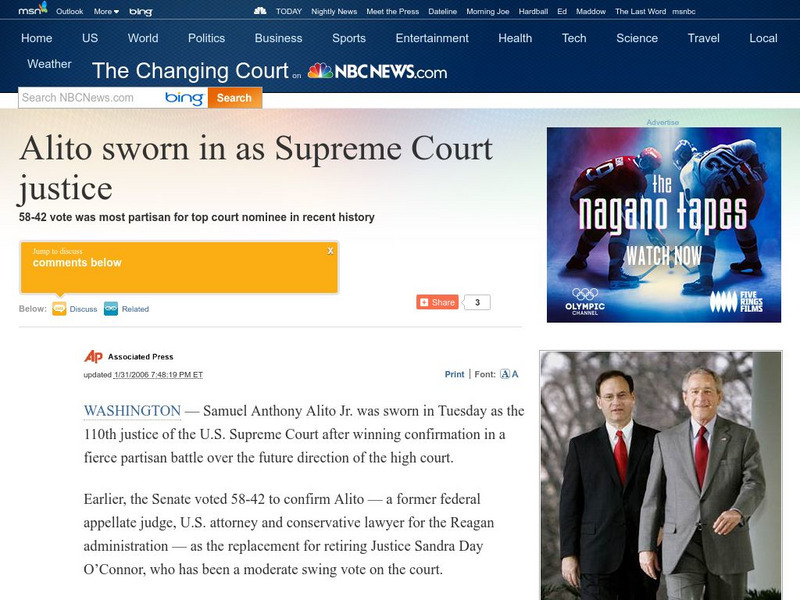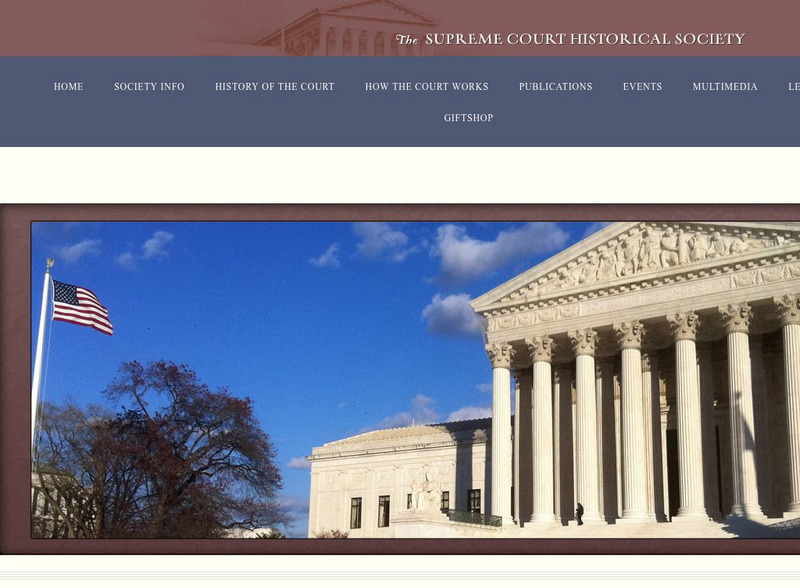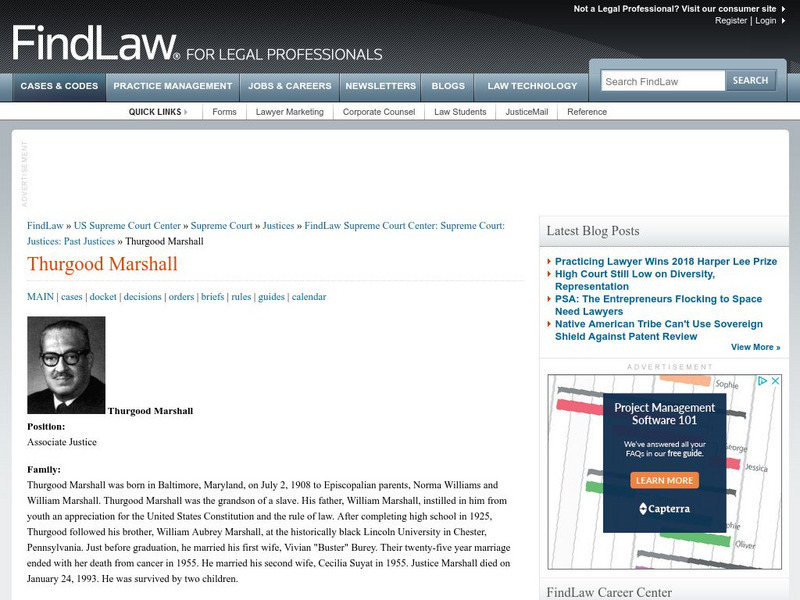Judicial Learning Center
The U.S. Supreme Court
How do Supreme Court justices determine which cases to consider? What happens when the Supreme Court decides not to take a case? The lesson explores important questions and others in the field of criminology. It focuses on the...
Judicial Learning Center
Levels of the Federal Courts
The Supreme Court gets all the glory, but very few federal cases make it to the highest court. An interesting lesson explores the structure of the lower levels of the federal court system. In addition to outlining the organization of...
Judicial Learning Center
The Appeal Process
Why doesn't the Supreme Court hear testimony from witnesses? How do they complete an entire proceeding in less than two hours? A helpful lesson guides scholars of criminology through these and other questions by explaining how appeals...
Judicial Learning Center
The Power of Judicial Review
Marbury v. Madison is arguably the most important landmark case in the history of the Supreme Court. A fact-filled lesson provides background information about the case and two others related to the concept of judicial review. Scholars...
Judicial Learning Center
Civil Rights and Equal Protection
Almost every American is familiar with the Supreme Court case of Brown vs. Board of Education. Far fewer understand the constitutional reasoning or the wide-ranging consequences of the ruling in the field of criminology. The interesting...
Judicial Learning Center
The Constitution
Supreme Court justices debate the meaning of the US Constitution, but we expect teachers to explain it to scholars with far less training and experience. A daunting task for sure, but it's not insurmountable with resources that simplify...
Judicial Learning Center
Types of Court Cases
How can one court acquit someone of a crime, while another convicts the person of the same one? It's all because of the differences between civil and criminal trials. An informative resource provides scholars in the field of criminology...
Judicial Learning Center
Why Study Landmark Cases?
Why study landmark Supreme court cases? A helpful lesson offers a brief but valuable argument for the importance of these cases in the field of criminology. It introduces scholars to some key terms necessary for studying court cases and...
Judicial Learning Center
Your 4th Amendment Rights
Americans love to learn about their rights, especially those that protect them from the government's power to invade their privacy. Young people are especially engaged by this topic. An informative lesson explores four Supreme Court...
Judicial Learning Center
Your 1st Amendment Rights
Why should classes care about the First Amendment? An engaging lesson serves as a powerful tool for answering just that. As all four cases in the lesson relate directly to freedom of expression in schools, young scholars explore the...
Judicial Learning Center
Judicial Independence
Most people support the idea of an independent judiciary in theory until they hear about a court case that violates their principles. An informative resource explains why the concept is important. It also provides scholars of criminology...
Judicial Learning Center
About Federal Judges
Not just anybody can do the job of a federal judge, but according to the United States Constitution just about anybody can be appointed. The lesson outlines the process and requirements for becoming a federal judge, focusing on the...
Curated OER
ACLU
Is the American Civil Liberties Union (ACLU) good for America? The informative website is a one-stop shop for ACLU debate resources. Scholars read about the topics surrounding the issue, including free speech, national security, and...
Curated OER
Abortion
Abortion has remained a highly controversial issue ever since the landmark 1973 Roe v. Wade decision. Using the website, learners sift through all the information they need to participate in a debate about the topic. They learn about the...
Curated OER
Churches and Taxes
Churches have been tax-exempt since the founding of America, but should they be? Pupils ponder the question as they browse the website in preparation for a class debate or discussion. They research the history of tax-exemption for...
ProCon
Gun Control
According to some estimates, there are more guns than people in the United States. Learners decide if America should enact more gun control laws. They analyze information about gun deaths in the United States by year, read about the...
Cornell University
Cornell University: Law School: Us Supreme Court: Justice Breyer
Read a brief biography of Supreme Court Justice, Stephen Breyer. Included is a link to the recent decisions in which Justice Breyer was involved, including opinions, concurrences, and dissents. From the Cornell University Law School.
Cornell University
Cornell University: Law School: Us Supreme Court: Justice Alito
Biographical information about Supreme Court Justise Samuel Alito. Included in this site from the Cornell Law School is a link to Justice Alito's recent court decisions.
University of Groningen
American History: Outlines: The Supreme Court
Discussion overview illustrating the structure and powers of the Supreme Court as written in the U.S. Constitution.
Other
Kids.gov: How the Supreme Court Works
Students will visualize how the Supreme Court works using the following downloadable infographic. Also included is an explanation of how cases reach the Supreme Court and lesson plans.
NBC
Nbc News: Alito Sworn in as Supreme Court Justice
January, 2006 report chronicling the swearing in of U.S. Supreme Court Justice Samuel Alito. Along with this report is a video report, link to political cartoons, photographic slideshow, and other resources.
Other
The Supreme Court Historical Society
Beautiful site that illustrates the history and heritage of the Supreme Court. In addition, site provides information on how the Court works, the Justices, and its opinions.
Other
Mt. Vernon Ladies' Association: George Washington and the Supreme Court
George Washington was responsible for a lot of firsts for our nation. One such task was to fill the Supreme Court with six justices. Read the following excerpt about this duty and use the chart to see who he nominated and for how long...
Thomson Reuters
Find Law: Supreme Court Justices: Thurgood Marshall
Here is an overview of the life and career of Thurgood Marshall (1908-1993), an advocate for civil rights and the first African-American Supreme Court justice. Read about Marshall's family, education, and career in law and government.























